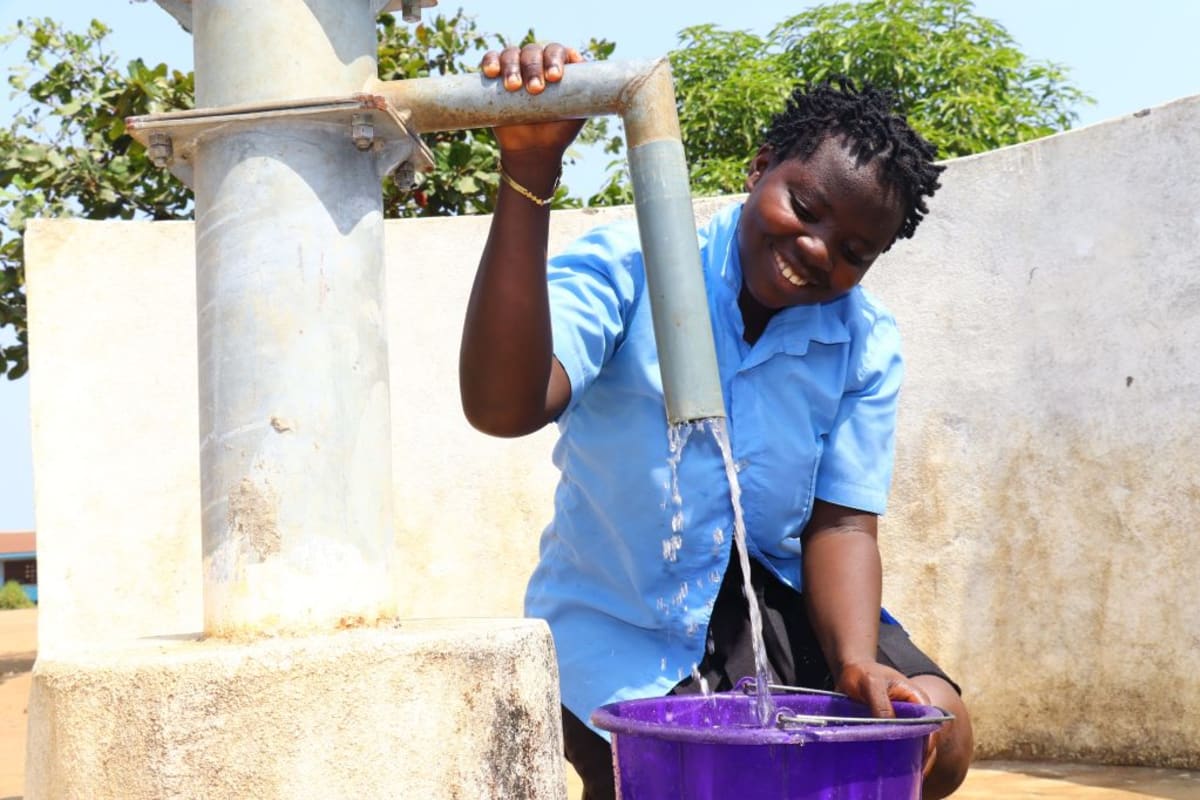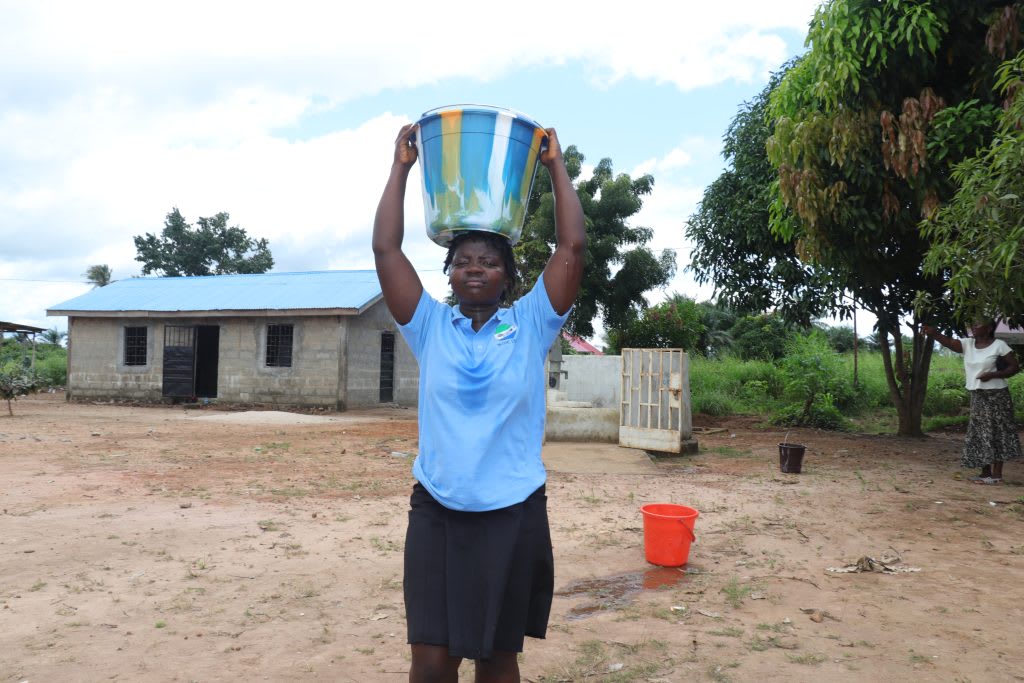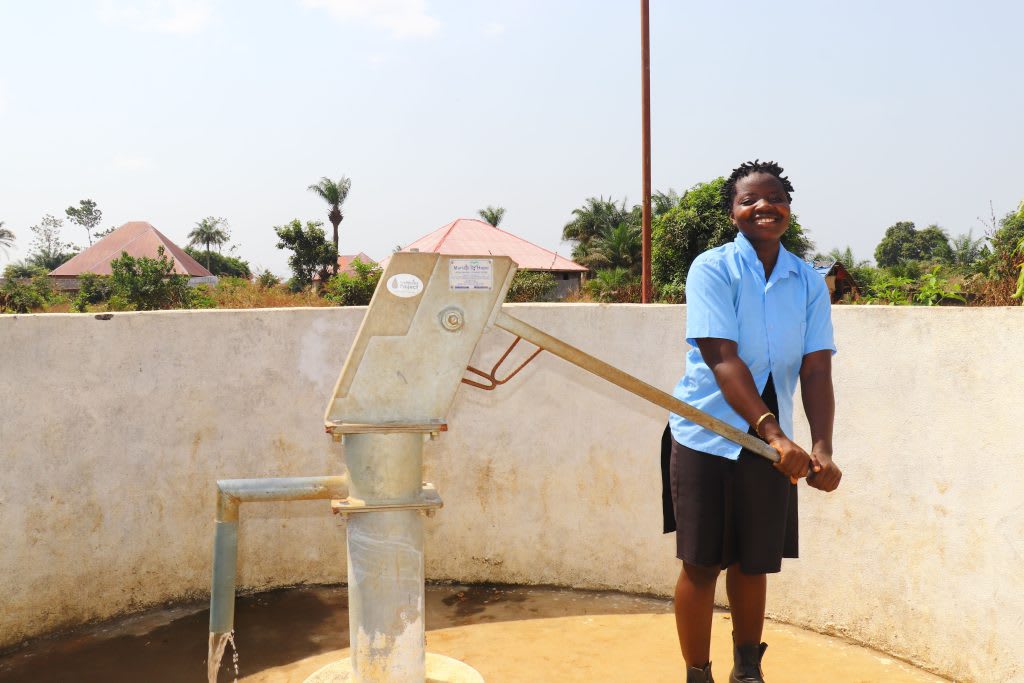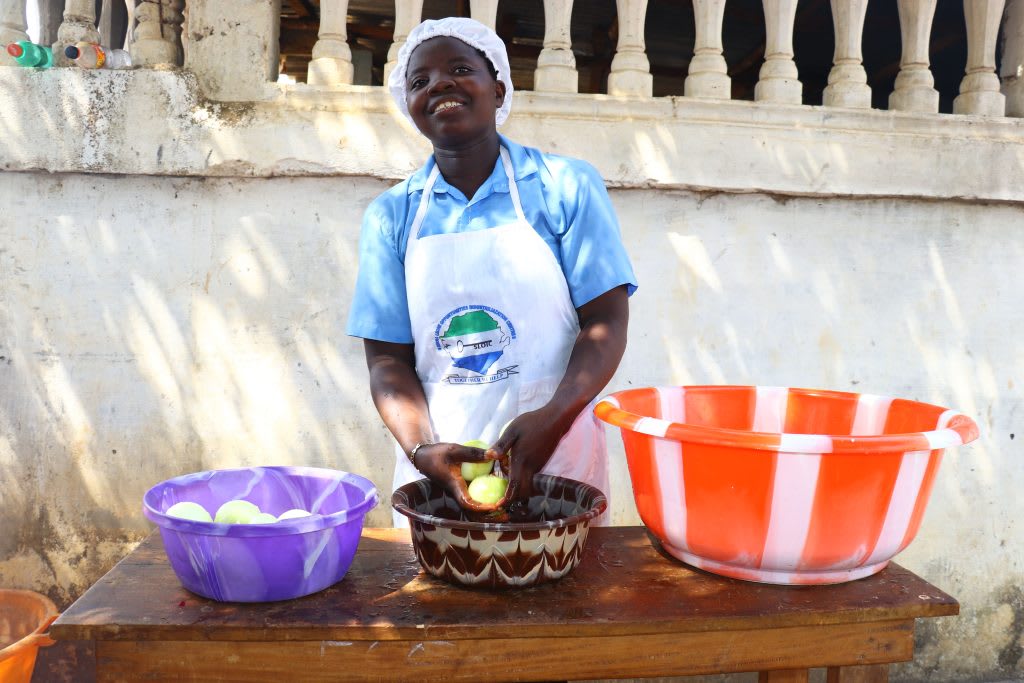The 287 students and staff of the Opportunists Industrialization Center (OIC) face a daily water crisis. Similar to a technical school where students are trained in different careers to enhance their futures, the student's education and the school's success are at risk because they do not have access to sufficient water.

Field Officer Alimamy Lanin Kanu shared, "The main and the alternative water sources do not provide sufficient water for the institution. One person can walk over 500 meters to fetch water. The students may be tired due to the distance covered to fetch water. The main water source is seasonal. It gets dry for almost a year."
"It was initially a hand-dug well, but we converted it to a borehole (seen below). We drilled down as far as we could, but we hit a lot of clay and slush. We have conducted a hydrogeological survey and believe we have found a suitable sustainable location for a new borehole to alleviate this problem of lack of access to safe drinking water. The alternate water source is hard to access because it is in a compound and too far from the school," continued Alimamy.
This school has provided many students with the opportunity to succeed in many different fields, and their contribution to their community is crucial; however, as their water crisis worsens, fewer students are able to benefit from this school.
"The institution has different areas of study like electricity, plumbing, masonry, tailoring, and catering. The institution has produced many electricians, plumbers, tailors, and caterers within the community and the country. The establishment of this institution has improved the lives of many youth around the country," shared Alimamy Lamin Kanu.

This school is full of students who are passionate and hard-working. They strive to do well, knowing that a career is the only way to break the cycle of poverty, but they often have to use their energy and time to scrounge for water instead of learning.
16-year-old Hannah K., seen below, is familiar with the struggle. She said, "I am doing catering in this institution, [which] needs a lot of water. Every day we have practice, also on how to prepare food. It is always easy when we have sufficient water within the school premises, and the opposite always happens if there is a water crisis in the school premises. If at all I don't have water around, I may leave the class and go out and search for water."

"We have a well in the school, but it is not functioning properly. It gets dry from January to late September. In times like that, I brought water from home to drink. It is really difficult to carry or hold water from my house to this school, but I have no choice. The neighborhood sometimes does not allow us to fetch water from their water source. There are also people that come around to sell water to us. Some of us cannot afford [it], and [it's] not safe for drinking purposes. My friends and I may risk begging [for] water from the food vendors when thirsty. They may manage to give us [some] even though the water might not be safe, but we take the risk because we have no option," continued Hannah.
As Hannah said, for nine months of the year, they are forced to bring water from home or beg for water, which is questionable. The well in the community is distant and insufficient; sadly, access is sometimes restricted. Three months out of the year is the only time they have sufficient water. Their futures are on the line, and water is the first step to creating a brighter one.
Teacher Ibrahim Lukullay, 55, seen below, shares his student's passion and their burden. He said, "The problem of water in this institution had been upsetting me and the entire membership of this institution. If the well in the school is not functioning properly, I may boycott classes to go and search for water in the neighborhood. The learning process of the students will be affected because they have to wait until I come back. As a teacher, I need safe and pure water for drinking. I also need water for handwashing as it will help us to prevent diseases."

Hygiene is crucial to creating a good learning environment, but if students become ill because they can't wash their hands all day, they lose even more time from their education.
"This is the biggest challenge I [usually] face during the time of the water crisis: If I don't have sufficient water to clean the restroom, this will trigger me to search for water. Sometimes, the quantity of water I [have] may not be enough, and this will prevent me from using the restroom. If I risk using it when there is not sufficient water, it will create a bad smell within my premises."
"The students always search for water from other water sources that are not protected. They may consume contaminated water since there is no option and they need water. This could lead to waterborne disease," continued Field Officer Alimamy.
The installation of the well will enable students like Hannah to ignite their passion for learning, as the water crisis won't consume them. Teachers like Ibrahim will ease their worries about illness and hygiene, allowing them to focus on teaching.
"I, therefore, speak in the interest of my fellow students for a new borehole to be constructed in our school so we will [have] enough water to tackle all our problems when it comes to water," concluded Hannah.
The Proposed Solution, Determined Together...
At The Water Project, everyone has a part in conversations and solutions. We operate in transparency, believing it benefits everyone. We expect reliability from one another as well as our water solutions. Everyone involved makes this possible through hard work and dedication.
In a joint discovery process, community members determine their most advantageous water solution alongside our technical experts. Read more specifics about this solution on the What We're Building tab of this project page. Then, community members lend their support by collecting needed construction materials (sometimes for months ahead of time!), providing labor alongside our artisans, sheltering and feeding the builders, and supplying additional resources.
Water Access for Everyone
This water project is one piece in a large puzzle. In Kenya, Sierra Leone, and Uganda, we're working toward complete coverage of reliable, maintained water sources that guarantee public access now and in the future within a 30-minute round trip for each community, household, school, and health center. One day, we hope to report that this has been achieved!
Training on Health, Hygiene & More
With the community's input, we've identified topics where training will increase positive health outcomes at personal, household, and community levels. We'll coordinate with them to find the best training date. Some examples of what we train communities on are:
- Improved hygiene, health, and sanitation habits
- Safe water handling, storage & treatment
- Disease prevention and proper handwashing
- Income-generation
- Community leadership, governance, & election of a water committee
- Operation and maintenance of the water point


 Reliable and clean water lays the groundwork for improved health, education, and economic possibilities, allowing people to thrive. We frequently hear from those we interview that "water is life!"
Reliable and clean water lays the groundwork for improved health, education, and economic possibilities, allowing people to thrive. We frequently hear from those we interview that "water is life!"

 Borehole Well and Hand Pump
Borehole Well and Hand Pump
 Rehabilitation Project
Rehabilitation Project


























